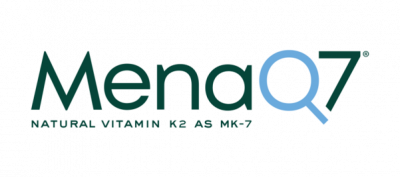
Improving K2 status may significantly benefit arterial stiffening and calcification, reducing cardiovascular complications.
The American Heart Association has published a new study examining the effect excessive inactive Matrix Gla Protein (MGP) has on cardiovascular health, namely increased stiffening and calcification of large arteries. This stiffening increases cardiovascular stress, which can be accurately assessed using pulse wave velocity measurements, and can be alleviated by improving one’s Vitamin K2 status.
The study, “Central Hemodynamics in Relation to Circulating Desphospho-Uncarboxylated Matrix Gla Protein: A Population Study”, evaluated vitamin K status (dp-ucMGP) in 835 randomly recruited Flemish individuals. The researchers found that higher inactive dp-ucMGP was associated with greater pulse wave velocity (PWV), central pressure, forward pulse wave, and backward pulse wave.
The authors wrote: “Stiffening and calcification of the large arteries are forerunners of cardiovascular complications. MGP, which requires vitamin K–dependent activation, is a potent locally acting inhibitor of arterial calcification. We hypothesized that the central hemodynamic properties might be associated with inactive desphosphouncarboxylated MGP (dp-ucMGP).”
The authors concluded that, along with the current body of literature, the study’s findings show “In people representative for the general population, higher inactive dp-ucMGP was associated with greater PWV, central pulse pressure, forward pulse wave, and backward pulse wave. These observations highlight new avenues for preserving vascular integrity and preventing cardiovascular complications (eg, by improving a person’s vitamin K status).”
The role of pulse wave velocity measurements
The paper is significant because it articulates the importance of pulse wave velocity measurements in gauging cardiovascular impact, and adds to the significant body of evidence NattoPharma has cultivated showing that improving K status can provide true health benefits, according to ex-NattoPharma Chief Medical Officer Dr. Hogne Vik.
Vitamin K and cardiovascular health
“This research again confirms a link to vitamin K status and risk of cardiovascular health. NattoPharma’s research has shown that vitamin K2 supplementation can halt and even regress progression of arterial stiffness. This paper recognizes that stiffening and calcification of the large arteries are forerunners of cardiovascular complication, and the mechanism to prevent this is the vitamin K-dependent activation of MGP.”
“Importantly,” Vik continued, “only vitamin K2 intake has been linked to cardiovascular benefit as K2 is the most bioactive and longest-lasting form of vitamin K. Vitamin K1, for example, has not been linked to cardiovascular benefit as K2 seems to be the form of K active outside of the liver for cardiovascular health.”
Reference:
Wei F, Thijs L, Cauwenberghs N, Yang W, Zhang A, Yu C, Kuznetsova T, Nawrot T, Struijker-Boudier HA, Verhamme P, Vermeer C, Staessen JA. Central Hemodynamics in Relation to Circulating Desphospho-Uncarboxylated Matrix Gla Protein: A Population Study. J Am Heart Assoc. 2019;8:e01 1960.
